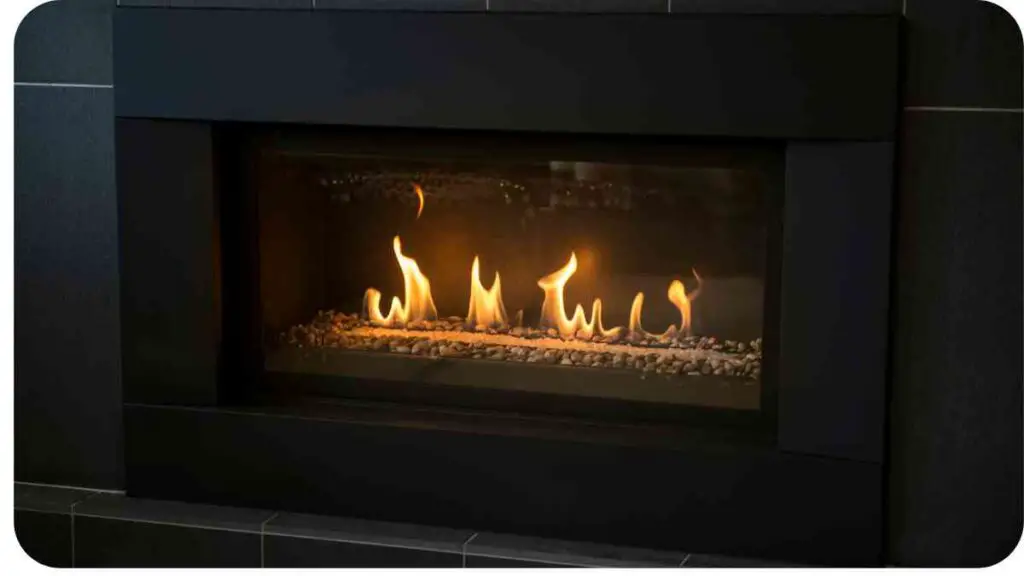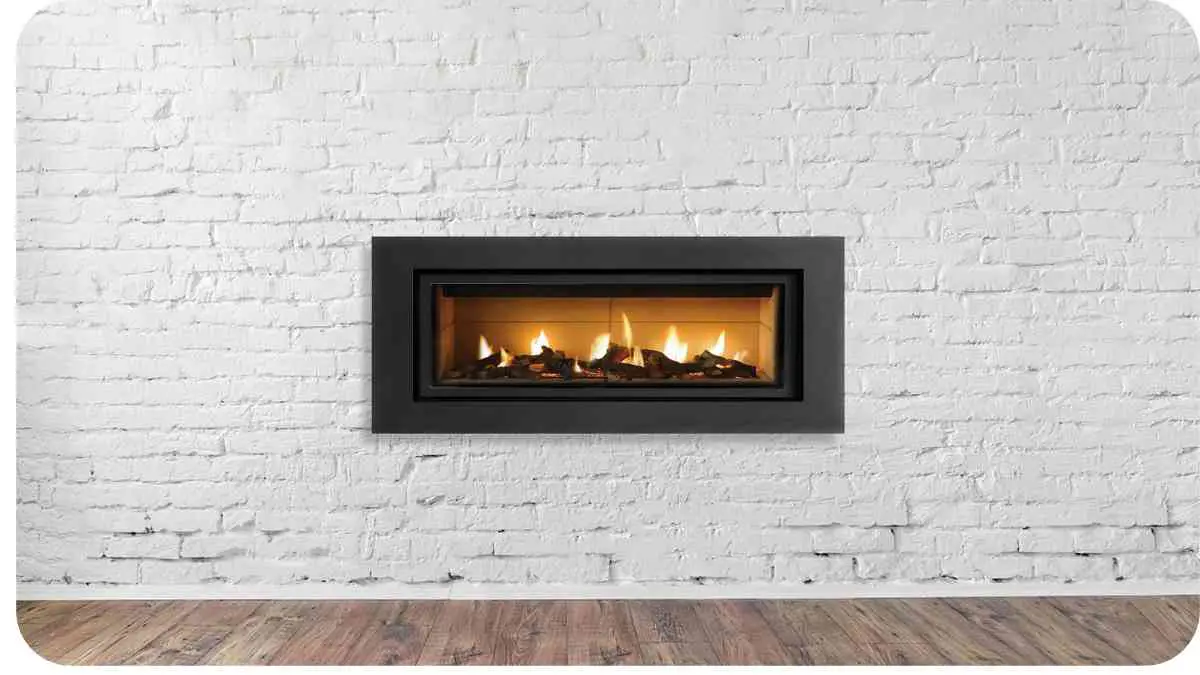Gas fireplaces are a cozy and efficient way to add warmth and ambiance to your home. However, sometimes they can emit unpleasant odors that resemble gas, causing concern for homeowners. In this article, we will delve into the reasons behind why your gas fireplace may smell like gas and provide valuable troubleshooting tips to address this issue.
| Key Takeaways |
|---|
| 1. Gas fireplace odors can result from various factors, including new installations, seasonal changes, and maintenance issues. Identifying the specific cause is essential for effective troubleshooting. |
| 2. Strong gas odors should not be taken lightly, as they may indicate a gas leak, which poses a severe safety risk. In such cases, immediate professional intervention is necessary. |
| 3. Regular cleaning and maintenance of your gas fireplace can help prevent odors by reducing dust and debris buildup. Consider scheduling an annual inspection for thorough upkeep. |
| 4. Proper installation, quality gas logs and burners, and appropriate venting are crucial factors in preventing gas fireplace odors from occurring in the first place. |
| 5. Adding carbon monoxide detectors to your home can enhance safety by providing early warnings of dangerous gases, ensuring a secure environment for your family. |
2. Understanding Gas Fireplaces
2.1. How Gas Fireplaces Work
Before we dive into troubleshooting, let’s understand how gas fireplaces operate. Gas fireplaces use natural gas or propane to fuel the flames. This gas is ignited by a pilot light or electronic ignition system, creating a controlled fire. The heat generated is then distributed into your living space, providing warmth and comfort.
If you’ve noticed strange noises coming from your fireplace, it’s essential to address them promptly. Check out our comprehensive guide on causes and solutions to keep your fireplace in top condition.
2.2. Common Types of Gas Fireplaces
There are various types of gas fireplaces, including:
Table 2.1: Common Types of Gas Fireplaces
| Type | Description |
| Direct Vent Gas Fireplace | These fireplaces have a sealed combustion system that draws outside air for combustion and vents exhaust gases outside. They are highly efficient and safe. |
| Ventless Gas Fireplace | Ventless fireplaces don’t require a chimney or vent, as they burn gas cleanly. However, they require proper ventilation to prevent odors and moisture buildup. |
| Gas Log Sets | These are gas burners and logs that can be added to an existing wood-burning fireplace, converting it to gas. Proper installation is essential to avoid odors. |
Now that we understand how gas fireplaces work and their types, let’s explore why your gas fireplace might have a gas-like odor.
3. Why Your Gas Fireplace Smells Like Gas
3.1. New Gas Fireplace Installation
If you’ve recently had a new gas fireplace installed, it’s not uncommon for it to emit a gas odor initially. This is often due to the curing process of paint, adhesives, and the burning off of residual oils from manufacturing.
3.2. Seasonal Factors
Seasonal changes can also impact gas fireplace odors. In the summer, when your fireplace isn’t in use, dust and debris can accumulate in the burner or venting system, leading to odors when you start using it again in the winter.
3.3. Maintenance and Cleaning
Neglecting regular maintenance and cleaning can result in odors. Dust and soot buildup in the burner or on the logs can create unpleasant smells when the fireplace is ignited.
3.4. Gas Leaks and Safety Concerns
The most concerning reason for a gas odor is a potential gas leak. Gas leaks are dangerous and require immediate attention. If you suspect a gas leak, turn off the gas supply, ventilate the area, and contact a professional immediately.
4. Troubleshooting Gas Fireplace Odors
4.1. Identifying the Type of Odor
Before taking action, it’s crucial to identify the type of odor your gas fireplace is emitting. Is it a chemical-like smell, a burning odor, or a rotten egg smell? Each type of odor can point to different issues.
Table 4.1: Types of Gas Fireplace Odors and Possible Causes
| Odor Type | Possible Causes |
| Chemical | New installation, curing materials |
| Burning | Dust and debris buildup |
| Rotten Egg | Gas leak (dangerous, seek immediate professional help) |
4.2. DIY Troubleshooting
For non-emergency situations, you can try these DIY troubleshooting steps:
- Cleaning: Clean the burner and logs to remove dust and soot.
- Ventilation: Ensure proper ventilation in the room to prevent odors from lingering.
- Seasonal Maintenance: Schedule annual maintenance checks before the winter season to prevent buildup.
4.3. Professional Inspection
If the odor persists or you suspect a gas leak, it’s imperative to seek professional help. Gas leaks are a serious safety hazard and should not be ignored.
Gas fireplaces can be a delightful addition to your home, but it’s essential to address any gas-like odors promptly. In the next section, we’ll discuss maintenance tips to keep your gas fireplace odor-free.
Dealing with ignition problems in your gas fireplace? Our step-by-step guide provides practical solutions to troubleshoot and resolve common issues, ensuring a warm and cozy home.
5. Gas Fireplace Maintenance Tips

5.1. Regular Cleaning
Cleaning your gas fireplace is crucial to prevent odors. Follow these steps:
Table 5.1: Gas Fireplace Cleaning Steps
| Step | Description |
| 1 | Turn off the gas supply and wait for the fireplace to cool down completely. |
| 2 | Remove the logs and burner to access the firebox. |
| 3 | Use a soft brush or vacuum cleaner to remove dust and debris from the burner and logs. |
| 4 | Wipe down the interior of the firebox with a damp cloth. |
| 5 | Reassemble the logs and burner, ensuring they are correctly positioned. |
| 6 | Turn on the gas supply and test the fireplace for any lingering odors. |
5.2. Annual Inspections
Preventive maintenance is key to avoiding odors. Schedule an annual inspection with a qualified technician who can clean and inspect the fireplace thoroughly.
5.3. Ventilation
Ensure that the room where the gas fireplace is installed has adequate ventilation. Proper airflow helps prevent odors from accumulating.
Is your fireplace’s pilot light constantly going out? Discover quick fixes and safety tips to maintain a steady flame and enjoy the comfort of your gas fireplace without interruption.
6. Preventing Gas Fireplace Odors
6.1. Proper Installation
To avoid odors from the start, ensure that your gas fireplace is installed correctly. Hire a professional installer who is experienced in gas fireplace installations.
6.2. Quality Gas Logs and Burners
Invest in high-quality gas logs and burners. Inferior products can release odors and may not burn cleanly.
6.3. Appropriate Venting
Choose the right venting system for your gas fireplace type. Direct vent gas fireplaces are less likely to emit odors compared to ventless models.
7. Ensuring Safety
7.1. Carbon Monoxide Detectors
Install carbon monoxide detectors in your home. These devices can alert you to the presence of dangerous gases, providing an added layer of safety.
While we specialize in electric fireplaces, understanding energy consumption is crucial for all types of fireplaces. Explore ‘The Real Cost of Running an Electric Fireplace’ in our article on energy consumption to make informed decisions about your fireplace usage
7.2. Gas Leak Detection
Familiarize yourself with the signs of a gas leak, such as the smell of rotten eggs. If you suspect a leak, follow safety protocols and contact a professional immediately.
8. Conclusion
In conclusion, a gas fireplace that smells like gas can be a cause for concern, but it’s essential to understand the various reasons behind it. By following the troubleshooting tips mentioned in this article and practicing regular maintenance, you can enjoy the warmth and comfort of your gas fireplace without worrying about unpleasant odors.
Remember, safety should always be a top priority, and if you suspect a gas leak, seek professional help immediately. With proper care and attention, your gas fireplace can provide a cozy and odor-free atmosphere for your home.
Having trouble with your Dimplex electric fireplace not heating as it should? Our guide on how to troubleshoot will help you identify and fix the issue, ensuring your fireplace provides the warmth and comfort you desire.
Further Reading
Here are some additional resources to explore for more information on addressing gas fireplace odors:
Why Do My Gas Logs Smell?: This blog post on Foster Fuels delves into the reasons behind gas log odors and provides valuable insights into troubleshooting and prevention.
Why Your Gas Fireplace Stinks: Full Service Chimney offers an informative article on why gas fireplaces may emit unpleasant odors and how to address this issue effectively.
Gas Fireplace Smells Like Gas?: Bob Vila’s article provides a comprehensive guide to understanding and resolving gas fireplace odors, ensuring you can enjoy a clean and odor-free fireplace experience.
FAQs
Why does my gas fireplace smell like gas?
Gas fireplaces can emit gas odors due to various reasons, including new installations, seasonal factors, and maintenance issues. It’s essential to identify the specific cause to address the problem effectively.
Is a gas fireplace odor dangerous?
While some gas fireplace odors may be harmless, a strong gas smell can indicate a gas leak, which is extremely dangerous. If you detect a strong gas odor, evacuate your home and contact a professional immediately.
Can I prevent gas fireplace odors from occurring?
Yes, you can prevent gas fireplace odors by ensuring proper installation, using high-quality gas logs and burners, and scheduling regular maintenance and inspections.
How often should I clean my gas fireplace to prevent odors?
It’s recommended to clean your gas fireplace at least once a year, preferably before the heating season begins. Regular cleaning helps prevent the buildup of dust and debris that can cause odors.
Are ventless gas fireplaces more likely to have odors?
Ventless gas fireplaces can emit odors if not properly maintained or if the room lacks adequate ventilation. However, direct vent gas fireplaces are less prone to odors due to their sealed combustion systems and external venting.

My name is Hellen James. I’m an expert in writing about fireplaces, hearths, and firepits because they’re a beautiful part of home decor, but also because they can be so much more than just a fireplace—they’re a way to enjoy the outdoors even when it’s cold outside!


